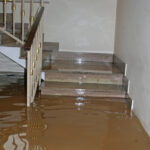What Is Home Insurance And What Does It Cover?

Photo by Prostock-studio On Envato Elements
Homeowner’s insurance is insurance that covers certain damages that can occur to homeowners. If you buy your house or apartment with a mortgage loan, you will be required to have a homeowner’s insurance policy.
Otherwise, they will not give you the loan. It is a financial protection measure.
What damages does homeowners insurance cover?
This varies from policy to policy. Therefore, it is best to read your policy. She will tell you what damage is covered and how much money you will get for each type of damage.
However, standard policies will cover:
- Accidental damages that third parties suffer in your home. This is what is known as civil liability. For example, if your cousin is visiting and is bitten by his dog, you could use his insurance. The insurance could cover your cousin’s medical expenses.
- Damage is caused by lightning, tornadoes, fire, wind storms, and hail. However, if you live in an area at high risk for a certain type of natural disaster, that type of disaster may not be covered. For example, if you live in Florida or Texas, your insurance may not cover hurricane damage.
- Damage to plumbing or heating systems caused by water. This is covered as long as the rain does not come from weather phenomena such as rain or snow.
- Theft and vandalism. If your home is broken into and personal belongings are taken, your insurance will probably cover the value of your stolen personal property.
For this reason, it is convenient to take an inventory of valuable personal properties that you have in your homes, such as jewelry, works of art, or electronic devices.
Policies have a deductible, which is an amount below which you will not be covered for damages. For example, if your policy has a deductible of $2,000, damages less than that amount will have to be paid for out of pocket.
Insurance will only pay damages above that amount. There are also coverage limits. If your policy has a limit of $500,000, for example, it won’t cover anything over that amount.
What does home insurance not cover?
Generally, insurance coverage does not extend to damage caused in the following circumstances:
- Damages are caused by the intentional acts of the homeowner. Thus, if the homeowner hits a visitor in the home, the insurance will not cover the damage suffered by the visit.
- Flood damage or mudslides caused by rain or snow.
- Damage caused by earthquakes.
What about high-risk areas?
If you live in an area at high risk for a specific type of natural disaster (floods, volcanic eruptions, hurricanes, etc.), your insurance may not cover damage from that natural disaster. In that case, you will need to purchase a separate policy for those types of damage.
This will give you the additional coverage you may need in the event of natural disasters.
Floods. The NFIP National Flood Insurance Program is a program supported by the United States government. It allows you to buy flood insurance in areas where they are prevalent, such as Florida, California, New York, and New Jersey.
Hurricanes and tornadoes. In areas where there are hurricanes and tornadoes, like Texas and Florida, you can buy policies that protect you against damage caused by these natural phenomena.
Earthquakes. In states with seismic activity, such as California and Nevada, you can purchase insurance that protects your home from earthquake damage.
The cost will depend on the location of the house, building materials, number of floors, foundation strength, construction technique, etc.
Volcanoes. In states with volcanic activity, such as California and New Mexico, a volcanic activity policy may be helpful. Insurance policies that cover damage caused by volcanoes generally protect you from damage related to ash, dust, particulate matter, and lava flow.
However, they generally do not cover damage caused by landslides, shock waves, or tremors.









Comment (0)